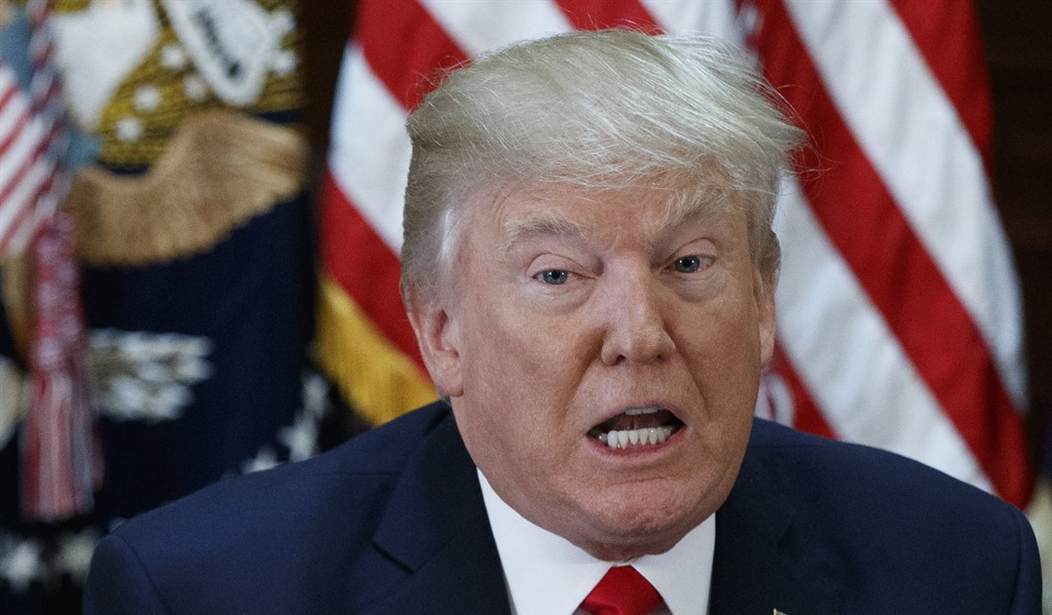Does this change in direction from the failure of the American Health Care Act three weeks ago signal a deal is about to emerge on ObamaCare repeal — or just an acknowledgment of reality? Donald Trump angrily castigated members of the House Freedom Caucus after the collapse of the AHCA last month and said he would turn his attention to tax reform instead. House Speaker Paul Ryan has steadfastly insisted that reversing ObamaCare has to go first in order to pave the way for tax reform, and Trump now seems to agree:
President Trump is again reshuffling his congressional agenda, saying Congress should first pass a repeal of the Affordable Care Act before measures such as an overhaul of the tax code can be considered.
The reversal comes just weeks after Trump said he was abandoning the health-care repeal effort following a nasty split between Republicans on how to proceed. He wanted to pivot immediately to an overhaul of the tax code, but lawmakers and advisers have convinced him that another effort is needed to repeal the health-care law, which was one of his top campaign promises. …
The new approach reflects a harsh political reality: Congressional budget rules make it much easier to pass a broad overhaul of the tax code once the roughly $1 trillion in taxes that are in the Affordable Care Act have already been repealed. So if the health-care law is repealed and replaced, the tax overhaul becomes politically easier.
Ryan said the same thing two weeks ago. The AHCA has its problems, but it does repeal a number of taxes built into ObamaCare that a separate tax reform bill can’t do — unless Republicans can get 60 votes in the Senate for it. They have two reconciliation tracks in this session of Congress that have specific parameters, one for ObamaCare repeal and the other for tax reform. Both have to show improvement of deficit spending to fall under reconciliation; without repealing ObamaCare, Trump’s tax reforms would necessarily have to narrow considerably, and would not be likely to stimulate much growth. It’s not impossible to accomplish tax reform on its own, but it will be quite limited.
Did that reality reorient Trump toward ObamaCare repeal, or have prospects for a deal within the GOP improved enough for a return to the original legislative priorities? The news has been mixed with Congress on its Easter recess. The Hill reported earlier this week that Republican leaders in the House are now “close” to an agreement, and that Ryan could recall lawmakers from their recess early if they clinch it:
Rep. Mark Meadows (R-N.C.) on Tuesday told a local radio station that he expects to hear back from Speaker Paul Ryan (R-Wis.) by noon about “two options” on the table. He did not elaborate.
“We’re very close. The biggest thing for all of us is we want to make sure we don’t just have repeal, but we have a replacement that drives down insurance premiums,” he said.
“It’s our encouragement to have a vote as soon as we possibly can, even perhaps before we return back to DC in 13 days.”
While House Majority Leader Kevin McCarthy (R-Calif.) has warned that members could be called back from recess early to vote on healthcare if a deal emerges, it appears unlikely.
Earlier today, though, The Atlantic threw some cold water on rising hopes of a deal. Instead, the impetus for Trump’s shift is his recognition that he has little choice in sequencing:
Representative Mark Meadows, the chairman of the Freedom Caucus, has been speaking daily with both the White House and Speaker Paul Ryan’s office in search of an agreement, as well as with leaders of the Tuesday Group, a larger collection of moderate Republicans who criticized the bill from the left.
But no deal is imminent, according to a senior Republican aide briefed on the negotiations. And there’s been no shift in the underlying dynamic that scuttled the AHCA originally: Conservatives are insisting that it repeal more of Obamacare, while moderates were concerned that it eliminated too many of the law’s more popular provisions already. …
The other reason Trump has returned to health care is that he seems to have a renewed appreciation for why Republicans wanted to begin with it in the first place. The president has repeatedly made clear that he preferred to start with tax reform, but that effort was, at least in part, predicated on first reducing the size of the federal government through a repeal of the Affordable Care Act.
By eliminating nearly $1 trillion in the law’s taxes and simultaneously cutting money out of Medicaid, Republicans could more easily reduce tax rates without further exploding the federal deficit. But without a new health law, the party likely will not be able to make the expansive changes Trump wants to the tax code—or at least not without a bigger fiscal and political headache.
Prediction: This renewed commitment from Trump will foster a deal in the House soon after the recess. Trump will think twice about lashing out at conservatives on social media after this, too, and they’ll come back more willing to bend. It’s now becoming clear to everyone on the GOP side of the aisle that they’re at a dead end unless they can get ObamaCare repealed once and for all, and that should be enough to get something passed. On the other hand, though, that much was obvious three weeks ago, and yet … here we are. Don’t bet the farm either way.







Join the conversation as a VIP Member